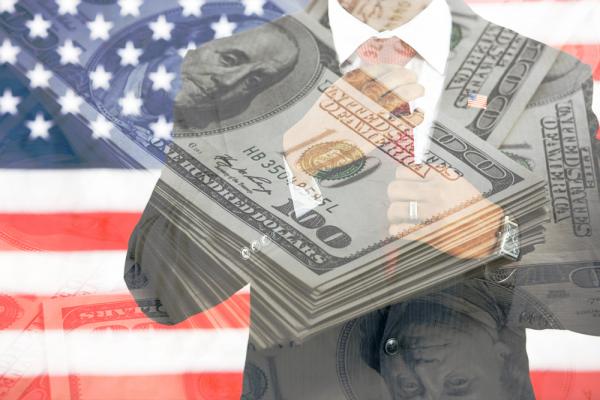While there are no biblical texts speaking directly to the issue of money in politics, biblical principles are still relevant, and people of faith have an important role to play in the emerging debate about the future of our democracy. Before exploring those principles, however, it is important to understand the serious issues of inequality currently present in our system, and the correlation between inequality and the money flooding our political system.
The richest one percent own more of the nation’s wealth than the bottom 90 percent. The richest one-tenth of one percent have as much pre-tax income as the bottom 120 million Americans.
In Affluence and Influence, political scientist Martin Gilens concludes that "the preferences of the vast majority of Americans appear to have essentially no impact on which politics the government does or does not adapt.” He details the data throughout his book that clearly demonstrates policy makers are only listening to the wealthy donor class. This situation has been made even worse by the Supreme Court’s Citizens United in 2010, which allowed a huge influx of money to flood our political system after declaring the personhood of corporations.
The Court’s more recent decision in McCutcheon v FEC made matters even worse. Before McCutcheon, one person was able to contribute up to $123,000 to political candidates and parties. In striking down this aggregate limit, the Court paved the way for individuals to contribute more than $3.5 million directly to candidates and party committees. In a report detailing the potential impact of McCutcheon, Demos predicts the decision could result in more than $1 billion in additional campaign contributions by 2020.
It is in this context of gross, growing inequality of income and political power that we must wrestle with our question of whether allowing unlimited political donations is morally desirable or unacceptable.
Several biblically grounded principles are relevant.
First, highly concentrated power is wrong for two reasons. The Bible tells us that every person is created in the image of God and is invited to be active in shaping the created world to produce beautiful, complex civilizations. But if power remains highly concentrated, how are the vast majority of people supposed to fulfill their creation mandate given by God?
Also, as Lord Acton said, power corrupts and absolute power corrupts absolutely. In a fallen world, sinful selfish people will almost always use concentrated power for their own personal self-interest. For these reasons, the conviction that power must be decentralized is at the center of the American democratic experiment.
Another biblical teaching is the declaration that God has a special concern for the poor. This is shown in hundreds of verses throughout the Bible. “He who is kind to the poor lends to the Lord” (Proverbs 19:17). The Bible also teaches pointedly that God actually works in history to pull down those who get rich by oppression or are rich and do not share (e.g., Jeremiah 5:26-29). This does not mean that God is biased towards the poor. Instead, because God cares equally for both the oppressor and oppressed, God sides with the oppressed to end the oppression so that the oppressed and oppressor may both become whole.
A third relevant principle emerges from the biblical teaching that justice is both procedural and distributive. The Bible calls for both fair procedures (Exodus 23:2-8) and fair economic systems and outcomes (Isaiah 5:7-9). The prophet Isaiah condemns the way the rich and powerful landowners have acquired all of the land by pushing out small farmers. The Bible demands that every person has access to the productive resources in order that they can work productively to earn a generous living and be dignified members of society.
In a sinful world, unchecked power will be abused for the selfish advantage of the few. Historically, the importance of avoiding unchecked concentrated power has been a fundamental principle of conservative political thought. Political conservatives ought to lead the movement to limit huge political contributions.
And limitation is justified because unlimited political contributions by individuals undermine other biblical concerns about the poor, justice, and power. A constitutional amendment to apply such a limit is expected to come up for vote in the U.S. Senate as soon as this summer. The amendment would empower Congress and state legislatures to once again reduce big money’s influence in our elections.
We must unite behind efforts like the constitutional amendment to defend the basic democratic principle that every person’s voice matters, not just that of the extremely wealthy. It is our duty as people of faith to protect our democracy and ensure that all of its citizens have a clear voice.
Ron Sider is an Evangelical Theologian at Palmer Theological Seminary, and the author of A Case for Limiting Political Contributions part of a volume of ten theological perspectives on Faith, Money and Politics published by Auburn Seminary.
Photo: Sean Locke Photography & Svetlana Lukienko/Shutterstock.com
Got something to say about what you're reading? We value your feedback!
